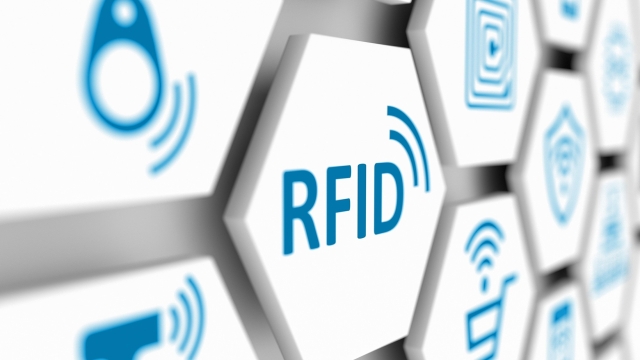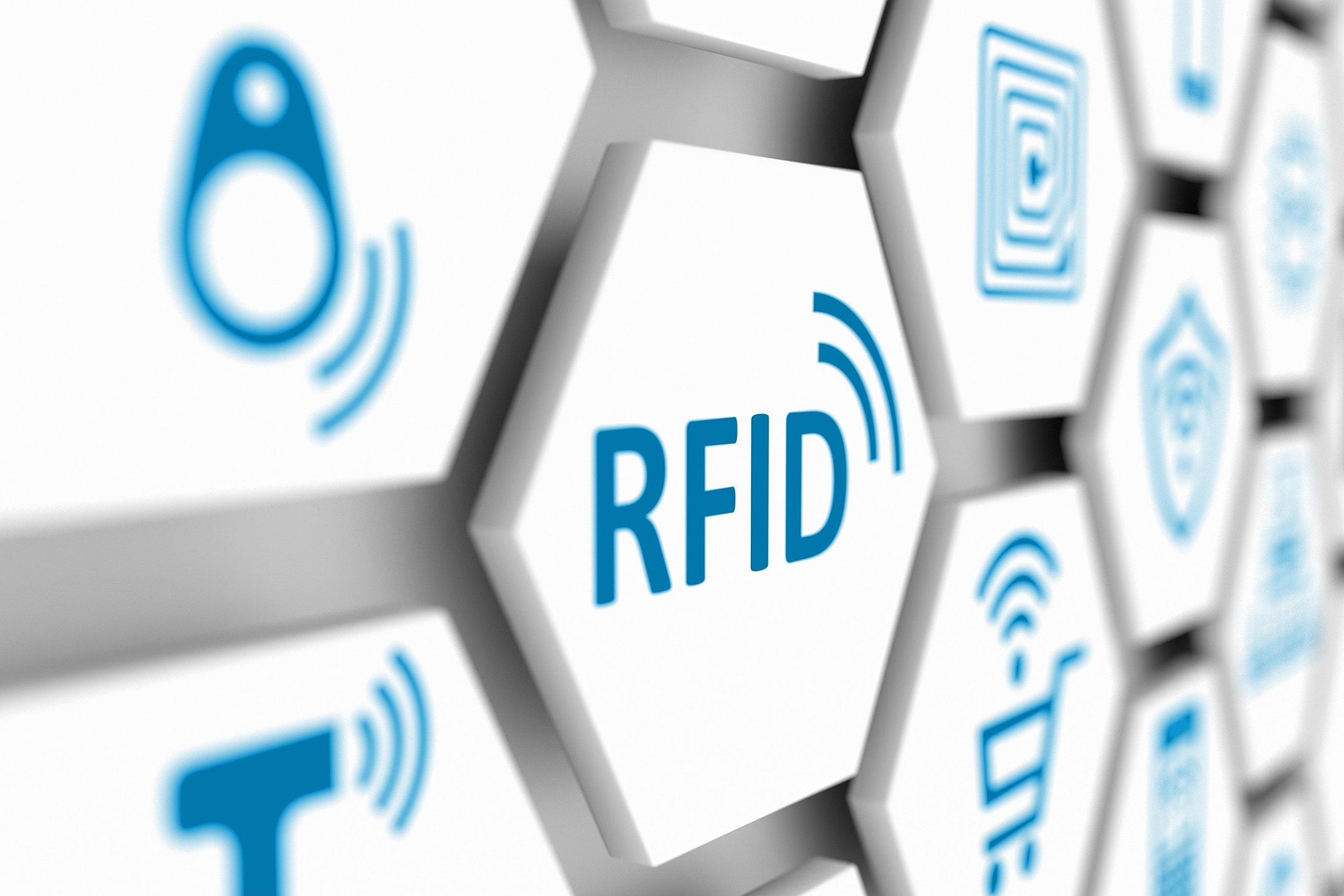
Unlocking the Power of RFID: Revolutionizing the Future
- by Jose Bryant
RFID technology has emerged as a game-changer in various industries, revolutionizing the way we track and manage data. This cutting-edge technology has paved the way for improved inventory management, enhanced supply chain visibility, and increased operational efficiency. With its ability to wirelessly identify and track objects using radio frequency signals, RFID has unlocked a world of possibilities, transforming traditional operations into seamless and automated processes.
At its core, RFID technology consists of two components: a tag and a reader. The tag, often in the form of a small chip or sticker, contains a unique identifier that can be read and decoded by the reader. Unlike traditional barcode systems, RFID does not require line-of-sight reading, allowing for faster and more accurate data collection.
radio frequency identification
The applications of RFID are virtually limitless, spanning across industries such as retail, manufacturing, healthcare, and logistics. In retail, for example, RFID tags can be affixed to individual products, enabling retailers to effortlessly track inventory levels and quickly reconcile discrepancies. This ensures that products are always readily available for customers, while minimizing costly stockouts or overstocks.
Moreover, RFID technology has proven to be a valuable asset in the healthcare sector, providing real-time tracking and monitoring of medical equipment, supplies, and even patients. By attaching RFID tags to items, medical professionals can streamline inventory management, reduce errors, and improve patient care.
In the manufacturing realm, RFID technology offers enhanced visibility and traceability of goods throughout the production process. By implementing RFID tags on components and products, manufacturers can closely monitor the movement of materials, automate inventory control, and identify potential bottlenecks in their operations.
As RFID technology continues to evolve and find innovative applications, we can expect to witness a profound transformation in the way we interact with everyday objects. From retail to healthcare to logistics, the power of RFID is paving the way for more efficient, automated, and connected processes, ultimately reshaping the future of various industries.
Understanding RFID Technology
RFID (Radio Frequency Identification) technology is a revolutionary system that is set to transform the way we track and manage various objects and assets. Using radio waves, RFID tags are able to transmit data and information wirelessly, allowing for seamless and efficient identification and tracking processes.
The foundation of RFID technology lies in its ability to capture and store data on a small chip, embedded within a tag. These tags, often affixed to objects or assets, can be read by RFID readers or scanners, which can retrieve the stored information. Unlike traditional barcode systems that require direct line-of-sight scanning, RFID technology can read multiple tags simultaneously, even when they are not within the direct line of sight.
One of the key advantages of RFID technology is its versatility. RFID tags can be applied across various industries and sectors, enabling tracking and identification in areas such as inventory management, supply chain logistics, retail, healthcare, and even livestock tracking. With its ability to capture real-time data, RFID technology provides valuable insights and enhances operational efficiency.
Moreover, RFID technology offers improved security and reliability compared to traditional tracking methods. The unique identification numbers attached to each tag ensure accurate and precise tracking, reducing errors and increasing accountability. Additionally, as the tags can be programmed to become readable or writable, information can be updated or modified as needed, further enhancing the flexibility of RFID technology.
In conclusion, RFID technology represents a significant advancement in tracking and identification systems. Its wireless nature and ability to capture and transmit data effortlessly make it a powerful tool in revolutionizing various industries. The potential applications of this technology are vast, offering numerous benefits in terms of efficiency, security, and reliability.
Applications of RFID Technology
RFID technology has found extensive applications across various industries, transforming the way businesses operate and enhancing efficiency. Let’s explore some key applications of RFID technology.
-
Supply Chain and Inventory Management:
RFID technology is revolutionizing supply chain and inventory management. By tagging products with RFID tags, businesses can easily track and trace their inventory at each stage of the supply chain. This enables real-time visibility, reduces manual labor, and minimizes errors in stock counting. With RFID, businesses can streamline their operations, improve inventory accuracy, and ensure timely deliveries. -
Retail and Customer Engagement:
In the retail sector, RFID technology is utilized to enhance customer engagement and optimize the shopping experience. RFID tags embedded in products enable automated checkout systems, eliminating the need for traditional barcode scanning. This speeds up the checkout process and provides a seamless shopping experience. Moreover, retailers can use RFID to gain insights into customer behavior and preferences, allowing for personalized marketing campaigns and targeted promotions. 
Healthcare and Asset Tracking:
RFID technology plays a vital role in healthcare, specifically in asset tracking. Medical facilities can use RFID tags to monitor and locate critical equipment, such as infusion pumps and medical devices. This improves operational efficiency, reduces equipment loss, and enables quick maintenance and repairs. Additionally, RFID-enabled patient wristbands enhance patient safety by ensuring accurate identification and medication administration.
As RFID technology continues to advance, its applications will expand further, driving innovation and revolutionizing various industries. Its ability to streamline operations, improve accuracy, and enhance customer experiences makes RFID a powerful tool for businesses to unlock their full potential.
Challenges and Future of RFID
RFID technology has come a long way in revolutionizing various industries, but it is not without its challenges and limitations. Overcoming these hurdles will be crucial in unlocking the full potential of RFID and shaping the future of this technology.
Firstly, one of the key challenges faced by RFID technology is the issue of read range. The read range of RFID tags, especially passive tags, is typically limited to a few meters. This poses a challenge in environments where longer-range identification is required, such as in large warehouses or wide-scale retail applications. Extending the read range of RFID tags will be essential for broader adoption and increased efficiency.
Another challenge lies in the interference and reliability of RFID systems. In environments with a high density of RFID tags or other wireless devices, there can be interference that affects the performance and accuracy of RFID reads. Additionally, factors such as metal surfaces or liquids can impact the efficiency of RFID systems. Developing robust and interference-resistant RFID technologies will be crucial in overcoming these challenges.
Lastly, the cost and scalability of RFID systems remain an area of concern. While the price of RFID tags has significantly decreased over the years, it is still a factor that limits mass adoption. Furthermore, implementing RFID systems on a large scale can be complex and costly, requiring infrastructure investments and integration with existing systems. Advancements in manufacturing processes and increased standardization can contribute to reducing costs and facilitating wider deployment.
Despite these challenges, the future of RFID technology looks promising. There are ongoing efforts to develop more powerful and energy-efficient RFID tags, which can enhance read ranges and enable new applications. Additionally, advancements in data analytics and machine learning can leverage the data collected by RFID systems, providing valuable insights for supply chain management, inventory control, and asset tracking.
In conclusion, while there are challenges that need to be addressed, such as read range, interference, and cost, RFID technology holds immense potential for revolutionizing various industries. Overcoming these challenges and continuous innovation in the field will shape the future of RFID, unlocking its power to streamline operations, improve efficiency, and transform the way we interact with the physical world.
RFID technology has emerged as a game-changer in various industries, revolutionizing the way we track and manage data. This cutting-edge technology has paved the way for improved inventory management, enhanced supply chain visibility, and increased operational efficiency. With its ability to wirelessly identify and track objects using radio frequency signals, RFID has unlocked a world…